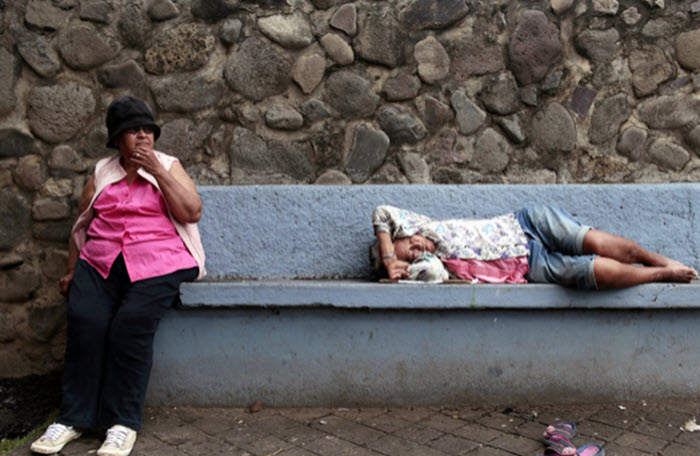Latin America’s ‘lost decade’ traditionally refers to the 1980s, when countries were forced to tightened their belts to meet debt payments. Could this happen again?
The coronavirus pandemic may spark another “lost decade” in Latin America, the International Monetary Fund (IMF) said on Thursday, April 16.
Alejandro Werner, the fund’s western hemisphere head, said the region, which includes the Caribbean, is facing its worst recession since countries began producing the data in the 1950s.
Latin America’s “lost decade” traditionally refers to the 1980s, when countries were forced to tightened their belts to meet debt payments, with the IMF usually demanding painful reform in return for bailouts.
Recent conditions in the region have led to “plummeting” economic activity with growth estimated to contract by 5.2% in 2020, Werner said in a blog post.
The region’s gross domestic product (GDP) could rebound by 3.4% in 2021, with projected growth of 2.7% between 2022 and 2025.
Nonetheless, “even under this quick recovery scenario, the region faces the specter of another ‘lost decade’ during 2015-25,” Werner said
This would mean that by 2025 Latin America’s GDP would not have attained 2015 levels.
After the 1980s, Latin America experienced a period of liberalization and a boom in raw material prices, which fueled regional growth between 2000 and 2013.
With the commodity boom now in the rearview mirror, experts had already predicted forthcoming regional economic issues for Latin America.
After the 1980s, Latin America experienced a period of liberalization and a boom in raw material prices, which fueled regional growth between 2000 and 2013.
With the commodity boom now in the rearview mirror, experts had already predicted forthcoming regional economic issues for Latin America.
The resulting “atypical supply and demand shocks” coupled with the challenges posed by the coronavirus and high financing costs across the region “will require an unprecedented approach,” Werner said.
The resulting “atypical supply and demand shocks” coupled with the challenges posed by the coronavirus and high financing costs across the region “will require an unprecedented approach,” Werner said.
This will include outreach to smaller companies and individuals in the informal sector through “all possible registries and methods,” he said.
Countries will also need to “create fiscal space in the budget by reducing non-priority expenditure and increasing the efficiency of spending,” Werner added.
“Countries will need to ensure that policies taken in response to the crisis are not perceived as permanent and become entrenched and generate distortions,” he said.
Werner also suggested an increase in taxes on petroleum products to generate funds.
The blog post was published as the IMF and World Bank hold their spring meetings by videoconference to avoid spread of the coronavirus.
More than 79,800 people in Latin America and the Caribbean have contracted the virus, which has killed over 3,600 people throughout the region, according to an Agence France-Presse tally
